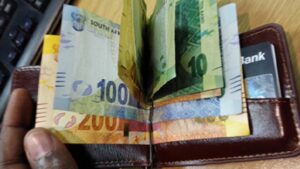The Recording Industry of South Africa (RiSA) says there has been an increase in online music piracy since the lockdown.
RiSA says statistics have shown that the Top 40 songs that were legally downloaded the most in the period preceding the lockdown dropped from 8170 songs a week, to 7 221.
According to Risa, some of the biggest hits in South Africa have been affected, with eMcimbini by Kabza de Small leading the pack.
Others include:
- Love Letter by Blaq Diamond
- Umlilo by DJ Zinhle
- Love You Tonight by MFR Souls
Risa CEO Nhlanhla Sibisi says piracy hurts the artist the most.
“People share music on WhatsApp platforms, on Instagram or various other platforms without understanding the consequences this has, especially on musicians who spend most of the time recording and delivering good quality music. We are in fact depriving the very same musician of an income,” says Sibisi.
Joyous Celebration hit hard
Award winning gospel ensemble Joyous Celebration is also among the hardest hit.
Their latest album Joyous 24, has been heavily pirated and songs are being shared on a WhatsApp line that is publicly asking music lovers to text so that they can receive the music.
Jabu Hlongwane from Joyous Celebration explains says: “People have really gotten to be on the computer and internet and programs to rip the music and steal the music. And there are many programs that do piracy. But we have found out that our program is being pirated but we have had talks with our company Sony music to try and stop that. The legal departments are following on that.”
Hlongwane says the piracy blow and cancellation of shows as a result of the lockdown will make it more difficult for artists to recover after the pandemic.
Affordability considerations
Events and Artist Manger Thabiso Tshabalala says some people genuinely do not know they are contributing to the illegal act as all they consider is affordability.
“The reason why the piracy is on the rise is because the core audience doesn’t understand the difference between a fakaza.com and Spotify. They don’t understand that the one platform is illegal and the other legal. They see it as free content on the one, and paid content on the other. That’s why we have such a big problem with piracy, it is not helping the artists. They use the content as a catalyst to get bookings. It’s killing the industry.”
Yet these digital platforms require data, which can be costly.
Hip hop DJ Bonolo Bmoe Seakgoe says this is because the legal platforms aren’t necessarily cheap and data costs in South Africa play a role and a lot of data is needed to stream the content.
Risa pleads with music lovers to refrain from piracy and only access music from legitimate sources.
Risa Acting Attorney Pierre Rautenbach explains:






